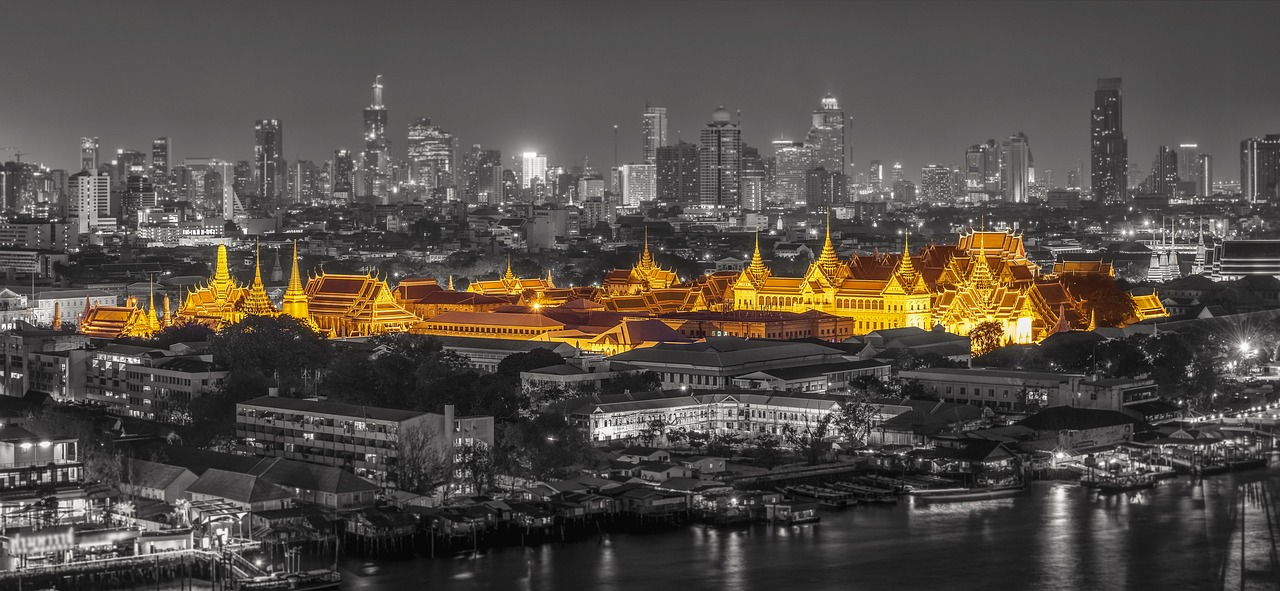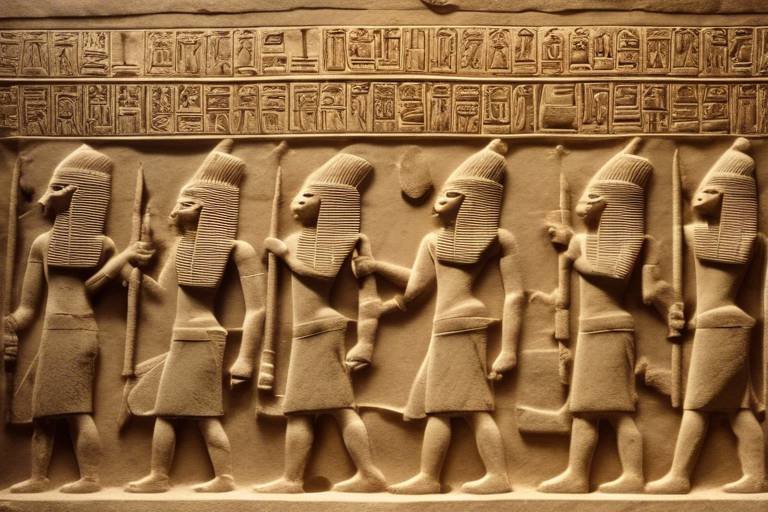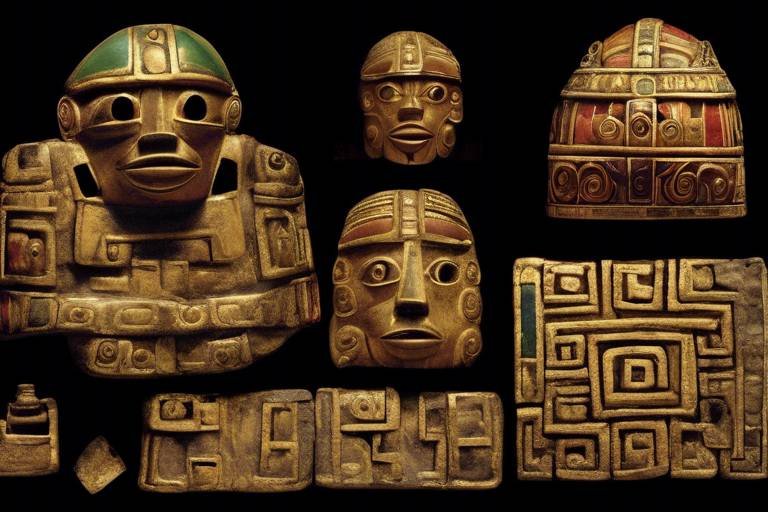The Rise and Fall of the Ashanti Kingdom - A Historical Perspective
The Ashanti Kingdom, a realm steeped in history and grandeur, witnessed a journey filled with triumphs and tribulations. From its modest beginnings to its zenith of power and influence, the Ashanti Kingdom's narrative is a captivating tale of rise and fall, shaping the course of Ghanaian history.
Established in the early 17th century, the Ashanti Kingdom emerged as a formidable force in the region, led by visionary leaders who laid the foundation for its growth and prosperity. Through strategic alliances and military prowess, the kingdom expanded its dominion, solidifying its position as a dominant force in West Africa.
At the peak of its power during the Golden Age, the Ashanti Kingdom flourished with vibrant cultural achievements and economic prosperity. Its political structure, characterized by a centralized monarchy and a council of elders, provided a stable governance system that upheld the kingdom's authority.
The religious practices of the Ashanti people were deeply intertwined with their daily lives, shaping their spiritual beliefs and cultural traditions. Rituals honoring ancestral spirits and deities played a significant role in maintaining social cohesion and harmony within the kingdom.
However, the encounters with European colonial powers, particularly the British, marked a turning point in the Ashanti Kingdom's history. Conflicts and power struggles ensued, challenging the kingdom's sovereignty and leading to a period of internal strife and civil wars.
As external pressures mounted and internal divisions grew, the once-mighty Ashanti Kingdom began to decline, facing challenges that ultimately led to its downfall. The legacy of the kingdom, though diminished, continues to resonate in modern Ghanaian society, preserving its cultural heritage and historical significance for generations to come.

Origins of the Ashanti Kingdom
The date back to the early 17th century, in present-day Ghana. Legend has it that the kingdom was founded by King Osei Tutu and his chief priest Okomfo Anokye, who performed a miraculous feat by conjuring a golden stool from the sky. This event symbolized the unity and spiritual significance of the Ashanti people, solidifying their identity and laying the foundation for a powerful empire.
Initially, the Ashanti Kingdom was a small state among many others in the region, but through strategic alliances and military prowess, it quickly expanded its influence. The Ashanti people, known for their skilled warriors and effective diplomacy, managed to absorb neighboring tribes and territories into their growing empire, establishing a formidable presence in the Gold Coast.
The early rulers of the Ashanti Kingdom, including Osei Tutu and his successors, implemented a centralized system of governance that allowed for efficient administration and swift decision-making. The king, considered divine and the embodiment of the kingdom's strength, wielded significant power, supported by a council of elders and various chiefs responsible for different regions.
Trade also played a crucial role in the development of the Ashanti Kingdom, as it controlled key routes for the exchange of gold, ivory, and slaves. The wealth generated from trade enabled the kingdom to strengthen its military, build impressive infrastructure, and support a thriving cultural scene that celebrated art, music, and storytelling.
As the Ashanti Kingdom grew in wealth and influence, it attracted the attention of European powers eager to exploit the resources of the region. This led to initial conflicts with the Portuguese and later with the British, who sought to establish control over the lucrative trade networks. Despite facing external pressures, the Ashanti Kingdom managed to maintain its independence through a combination of military resistance and diplomatic negotiations.

Expansion and Golden Age
The of the Ashanti Kingdom marked a period of remarkable growth and prosperity that solidified its position as a dominant force in West Africa. During this era, the kingdom experienced a surge in territorial expansion, military conquests, and cultural achievements that defined its Golden Age.
Under the leadership of skilled rulers and military strategists, the Ashanti Kingdom embarked on a series of successful military campaigns, expanding its influence and control over vast territories. The Ashanti army, renowned for its discipline and tactics, played a crucial role in securing victories and subduing rival states.
One of the key factors contributing to the kingdom's Golden Age was its lucrative trade networks, particularly in gold and kola nuts. The Ashanti's control over these valuable resources not only enriched the kingdom but also enhanced its prestige and power in the region.
Culturally, the Ashanti Kingdom flourished during this period, with significant advancements in art, music, and craftsmanship. Skilled artisans produced intricate gold jewelry, colorful kente cloth, and elaborate sculptures that showcased the kingdom's artistic prowess and cultural sophistication.
Moreover, the Ashanti society thrived on a strong sense of community and unity, with a well-defined social structure that emphasized loyalty to the king and respect for traditional customs. The kingdom's system of governance, guided by the wisdom of the king and the council of elders, provided stability and cohesion during times of expansion and growth.
As the Ashanti Kingdom reached its zenith during the Golden Age, it became a beacon of power and influence in the region, attracting admiration and envy from neighboring states and European colonial powers alike. The wealth, military prowess, and cultural achievements of the kingdom symbolized a golden era that would be remembered for generations to come.

Political Structure and Governance
Exploring the rich history of the Ashanti Kingdom, from its humble beginnings to its peak of power and influence, and ultimately examining the factors that led to its decline and eventual fall.
The Ashanti Kingdom was known for its unique political structure and governance system, which played a crucial role in its administration and stability. At the heart of the kingdom's political framework was the Asantehene, the king who held both political and spiritual authority. The Asantehene was revered as the supreme leader, embodying the unity and power of the Ashanti people.
Supporting the Asantehene was the Council of Elders, composed of respected chiefs and advisors who provided counsel and assisted in decision-making. This council served as a check on the king's power and ensured that decisions were made in the best interest of the kingdom as a whole.
Furthermore, the Ashanti Kingdom had a well-defined system of chieftaincy, with various chiefs overseeing different territories and communities. These chiefs held authority over local matters and reported to the Asantehene, creating a hierarchical structure that maintained order and cohesion within the kingdom.
In addition to the Council of Elders and chieftains, the Ashanti Kingdom also had specialized institutions responsible for specific functions, such as the Asafo companies. These military and social organizations played a crucial role in defense, cultural preservation, and community development, further solidifying the kingdom's governance system.
Overall, the political structure and governance of the Ashanti Kingdom were characterized by a balance of power, respect for tradition, and a deep sense of unity among its people. This system of governance contributed to the kingdom's strength and resilience, allowing it to thrive for centuries despite external pressures and internal challenges.
- What led to the decline of the Ashanti Kingdom?
- How did the Ashanti Kingdom impact modern Ghanaian society?
- What role did religion play in the governance of the Ashanti Kingdom?
The decline of the Ashanti Kingdom was influenced by a combination of factors, including internal power struggles, external conflicts with European powers, and changing global dynamics that impacted the region.
The legacy of the Ashanti Kingdom is still evident in modern Ghanaian society through its cultural influence, traditional practices, and the preservation of historical heritage that continues to shape the identity of the nation.
Religion played a significant role in the governance of the Ashanti Kingdom, with spiritual beliefs and rituals shaping political decisions, cultural practices, and social cohesion within the kingdom.

Religion and Beliefs
Exploring the rich history of the Ashanti Kingdom, from its humble beginnings to its peak of power and influence, and ultimately examining the factors that led to its decline and eventual fall.
The religious practices and beliefs of the Ashanti people were deeply intertwined with their daily lives and societal structure. Central to their spirituality were a pantheon of deities, each representing different aspects of nature and human existence. These deities were worshipped through elaborate rituals and ceremonies, seeking blessings for good harvests, protection in times of war, and overall well-being of the community.
One of the most significant deities in Ashanti religion was Nyame, the sky god, believed to be the creator of the universe and source of all life. Nyame was revered as the ultimate authority, overseeing the balance of the cosmos and guiding the destiny of the Ashanti people.
The Ashanti also held strong beliefs in ancestral veneration, honoring their forebears through rituals and offerings. Ancestors were seen as intermediaries between the living and the spiritual realm, providing guidance, protection, and blessings to their descendants. This practice reinforced the sense of continuity and interconnectedness within the Ashanti society.
Moreover, the Ashanti placed great importance on divination and spiritual consultations to seek guidance from the spiritual realm. Priests and priestesses, known as Okomfo, played crucial roles in interpreting messages from the deities and ancestors, offering insights into important decisions, resolving disputes, and predicting future events.
Overall, the religious beliefs of the Ashanti people were deeply ingrained in every aspect of their culture, shaping their worldview, moral values, and social interactions. The spiritual traditions and rituals served not only as a means of connecting with the divine forces but also as a cohesive force that united the community in times of joy, sorrow, and uncertainty.

Encounters with European Powers
During the 19th century, the Ashanti Kingdom found itself in a tumultuous period marked by encounters with European powers, most notably the British. These interactions were characterized by a complex mix of diplomacy, trade, and conflict that would significantly impact the future of the kingdom.
European powers, driven by imperial ambitions and the desire for resources, sought to establish dominance in the region, leading to clashes with the Ashanti Kingdom. The British, in particular, viewed the Ashanti as a formidable force that needed to be subdued to secure their interests in the Gold Coast.
One of the most notable conflicts between the Ashanti and the British was the Anglo-Ashanti Wars, a series of military engagements that spanned several decades. These wars were fueled by competition for control over trade routes, resources, and the imposition of colonial authority.
Despite the Ashanti Kingdom's fierce resistance and military prowess, the British eventually gained the upper hand through superior firepower and strategic alliances with rival factions. The signing of the Bond of 1844 further solidified British influence in the region, limiting the Ashanti's autonomy.
As a result of these encounters, the Ashanti Kingdom faced significant territorial losses, economic exploitation, and political subjugation at the hands of European powers. The imposition of colonial rule disrupted traditional systems of governance and trade, leading to social upheaval and cultural erosion.
Although the Ashanti Kingdom continued to resist British incursions and maintain elements of its independence, the impact of European colonialism irreversibly altered the course of its history. The legacy of these encounters with European powers continues to shape the cultural and political landscape of modern Ghana.

Internal Struggles and Civil Wars
Internal struggles and civil wars were not uncommon within the Ashanti Kingdom, despite its outward appearance of unity and strength. These conflicts often stemmed from disputes over succession to the throne, with rival factions vying for power and influence. The intricate web of familial ties and political alliances sometimes led to violent confrontations that threatened the stability of the kingdom.
One of the most notable civil wars in Ashanti history was the War of the Golden Stool, which erupted in the late 19th century. This conflict was sparked by British attempts to assert control over the Ashanti Kingdom and culminated in a series of bloody battles that tested the resilience of the Ashanti people. The war revealed deep divisions within the kingdom and highlighted the challenges of maintaining unity in the face of external threats.
Succession disputes also played a significant role in the internal struggles of the Ashanti Kingdom. The intricate rules governing the selection of a new king often led to power struggles among competing factions, as different claimants sought to secure their position on the throne. These disputes sometimes escalated into full-blown civil wars, further weakening the kingdom's ability to resist external pressures.
Despite the internal conflicts that plagued the Ashanti Kingdom, the resilience of its people and the strength of its cultural traditions allowed it to weather many storms. The ability to navigate through periods of turmoil and emerge stronger on the other side was a testament to the enduring spirit of the Ashanti people. While civil wars and internal struggles undoubtedly took their toll, they also shaped the identity of the kingdom and left a lasting impact on its legacy.

Decline of the Ashanti Kingdom
As we delve into the decline of the once-mighty Ashanti Kingdom, we uncover a complex tapestry of events and circumstances that led to its gradual downfall. The once formidable empire, known for its military prowess and rich cultural heritage, began to face challenges that would ultimately erode its power and influence.
One of the key factors contributing to the decline of the Ashanti Kingdom was the increasing pressure from European colonial powers, particularly the British. As European influence in the region grew stronger, the Ashanti Kingdom found itself facing external threats and encroachments on its territory, leading to conflicts that strained its resources and weakened its position.
Internal divisions and power struggles also played a significant role in the decline of the Ashanti Kingdom. Succession disputes and conflicts among the royal family and nobles created instability within the kingdom, making it vulnerable to external pressures and diminishing its ability to govern effectively.
Furthermore, changing global dynamics and the shift towards modernity posed challenges to the traditional structures of the Ashanti Kingdom. As the world around them evolved, the kingdom struggled to adapt and maintain its relevance in the face of rapidly changing political and economic landscapes.
Despite efforts to resist colonial incursions and preserve its independence, the Ashanti Kingdom found itself increasingly isolated and weakened. The once proud empire, which had stood as a beacon of African power and resilience, began to crumble under the weight of external pressures and internal conflicts.
Ultimately, the decline of the Ashanti Kingdom serves as a cautionary tale of the fragility of empires and the complexities of power dynamics. It reminds us of the importance of adaptability and unity in the face of external threats, and the consequences of internal strife on the stability and longevity of a kingdom.

Legacy of the Ashanti Kingdom
As we reflect on the legacy of the Ashanti Kingdom, it becomes evident that its impact transcends time, leaving an indelible mark on modern Ghanaian society. The cultural influence of the Ashanti Kingdom is palpable in various aspects of Ghanaian life, from traditional ceremonies to artistic expressions.
One of the most notable legacies of the Ashanti Kingdom is its rich tradition of oral history and storytelling, which has been passed down through generations. These narratives not only preserve the history of the kingdom but also serve as a source of inspiration and pride for the Ghanaian people.
Furthermore, the Ashanti Kingdom's intricate system of symbols and proverbs continues to be a significant part of Ghanaian communication and artistic expression. These symbols convey deep meanings and values, reflecting the wisdom and cultural richness of the Ashanti people.
In addition to cultural influences, the Ashanti Kingdom's legacy is also evident in the political landscape of modern Ghana. The system of chieftaincy, which traces its roots to the Ashanti Kingdom, plays a crucial role in local governance and decision-making processes.
Moreover, the Ashanti Kingdom's emphasis on unity and collective responsibility has shaped the social fabric of Ghanaian society, fostering a sense of community and solidarity among its people. This spirit of togetherness is a testament to the enduring legacy of the Ashanti Kingdom.
In conclusion, the legacy of the Ashanti Kingdom serves as a reminder of the resilience and cultural richness of the Ghanaian people. By cherishing and preserving the traditions and values of the Ashanti Kingdom, modern Ghanaians pay homage to their heritage and ensure that the legacy of this once powerful kingdom continues to thrive for generations to come.
Frequently Asked Questions
- What were the origins of the Ashanti Kingdom?
The Ashanti Kingdom originated from the Ashanti people in the early 17th century in present-day Ghana. It was founded by King Osei Tutu and his advisor, Okomfo Anokye, who united several Akan states to form a powerful empire.
- How did the Ashanti Kingdom achieve its Golden Age?
The Ashanti Kingdom experienced its Golden Age through military conquests, trade expansion, and cultural achievements. They established a strong centralized government, developed a sophisticated bureaucracy, and controlled valuable gold mines.
- What was the political structure of the Ashanti Kingdom?
The Ashanti Kingdom had a unique political system with a king (Asantehene) at the top, supported by a council of elders and various chiefs. The king's power was balanced by the authority of the council and the governing institutions.
- How did encounters with European powers impact the Ashanti Kingdom?
The Ashanti Kingdom faced conflicts with European colonial powers, especially the British, leading to the Anglo-Ashanti Wars. These encounters disrupted trade, introduced firearms, and eventually resulted in the British annexation of Ashanti territories.
- What factors contributed to the decline of the Ashanti Kingdom?
The decline of the Ashanti Kingdom was influenced by internal power struggles, external pressures from European powers, and changing global dynamics. Civil wars, succession disputes, and the loss of key territories weakened the kingdom over time.
- What is the legacy of the Ashanti Kingdom in modern Ghanaian society?
The Ashanti Kingdom's legacy is evident in Ghanaian culture, traditions, and governance. Their artistic achievements, oral history, and symbolic rituals continue to influence the country's identity, serving as a reminder of their historical significance.



















